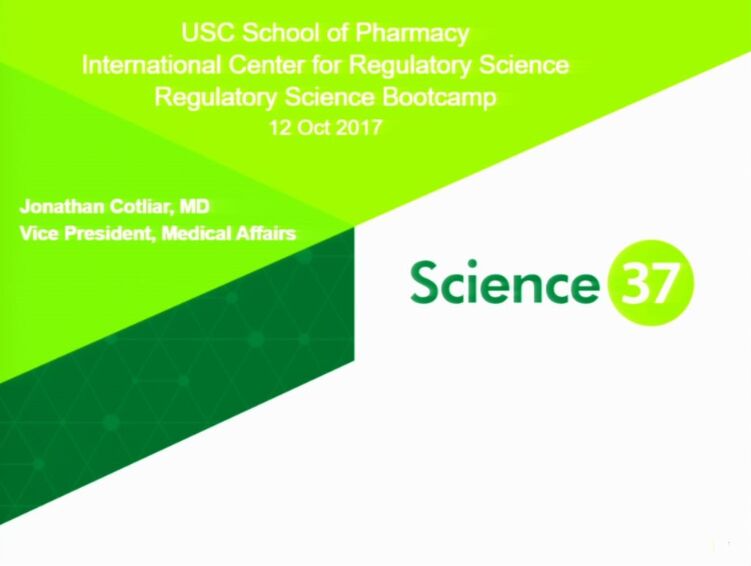The big problems of clinical trials:
- Take too long to plan and execute
- The multi-site bottleneck
- Enrolment issues
The solution is to bring the trial to the patients using the Science 37 Approach that allows engagement, recruitment, screening and enrolment to large numbers of patients
NORA Transforms Trial Logistics:
- A first-in-class technology to connect the patient with investigators and S37 study team to collect all clinical trial data from home
- NORA is a 21 CFR Part 11 compliant technology platform that allows Science 37 to bring research directly to participants in their own homes
- Study visits that include phone visits, televisits, mobile nurse and source data are entered in NORA and transcribed to the trial EDC
Key Regulatory Questions:
- What are the potential possible advantages or benefits of conducting a study via the decentralized model (DCT) verse using a conventional brick and mortar approach?
- Will data collected via the decentralized model be accepted by health authorities?
Characteristics of “best fit” studies for the DCT Model:
- Patents motivation
- Patient mobility
- Therapeutic area
- Drug characteristics
- Safety profiles
- Eligibility criteria and outcome measurement
- Geography


